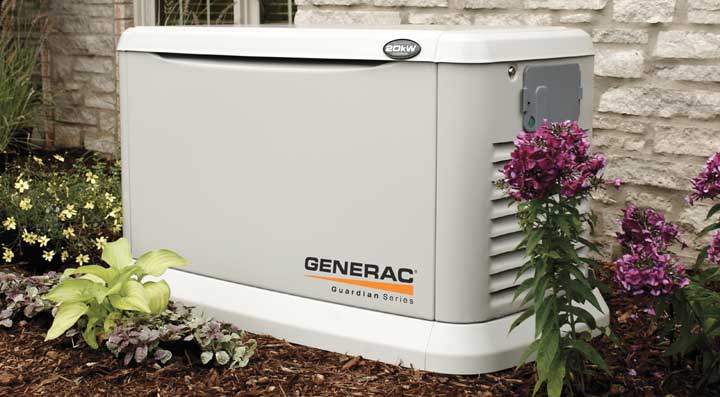
Your power needs, spending power, and ability to roll out the generator when it’s needed are chief criteria for choosing what’s best.
The choice boils down to cost vs. convenience. If you want to be ready for any power outage anytime, nothing beats a stationary generator. Once it’s installed, it just fires up—automatically—when needed. But most people choose a portable generator because it costs far less and is simpler to set up. Here are other benefits and drawbacks of each:
Portable Generators
Power output: For models that can connect to a transfer switch, usually 5,000 to 7,500 watts.
Price range (as tested): $500 to $4,000; inverter generators, $1,600 to $4,500.
Pros: A portable generator can be transported easily from one location to another. Setup is as simple as turning them on and powering items. And they can be shared among neighbors.
Cons: They run on fuel, and fuel storage can be a challenge. And though they include a number of power outlets, running extension cords to a portable generator also poses safety risks; that’s why a transfer switch is recommended.
Fuel needs: A 7,000-watt portable generator will use 12 to 20 gallons of gasoline per day if it runs continuously for 24 hours. More powerful generators use more fuel.
Stationary Generators
Power output: 8,000 to more than 20,000 watts.
Price range: $1,900 to $5,000 or more, plus installation (about $2,000 to $10,000).
Pros: They start automatically when the power goes out and often supply more power. They also periodically run a self-¬diagnosis routine that can alert you to problems. That enables you to get problems fixed before you need the generator. They run on natural gas or propane and save you the hassle and safety risks of storing fuel.
Cons: Beyond the higher cost of purchase and installation, they often require municipal permits and site approvals.
Fuel needs: A small 8,000-watt stationary model can run for eight to 15 days on a 250-gallon propane tank or indefinitely on a natural gas line.
A Greener, Quieter Alternative
Unlike most portable generators, which run at one engine speed, inverter generators have smart circuitry that varies engine speed depending on what they’re powering. That conserves gasoline and cuts down on the noise.
Another important benefit of inverter generators is that they dispense power smoothly at a consistent voltage. That so-called clean power (measured by the Total Harmonic Distortion, THD, in industry lingo) is less likely to damage the sensitive electronics found in computers, TVs, chargers, and many appliances today.
If that kind of clean, even power is a real priority, then consider a stationary generator. They provide more overall wattage and quality of power for the money, even when installation costs are factored in.
For more information, contact South Shore Generators in Wareham, MA.
Source: consumerreports.org
Whether your need is to power your business to keep on your production schedule or your home to keep your family safe and sound, South Shore Generator has the product diversity to meet all of your generator requirements. We are proud to sell and service generators from 2kW to 2000kW single set units and up to as large as 100MW utilizing Generac's innovative Modular Power Systems (MPS).